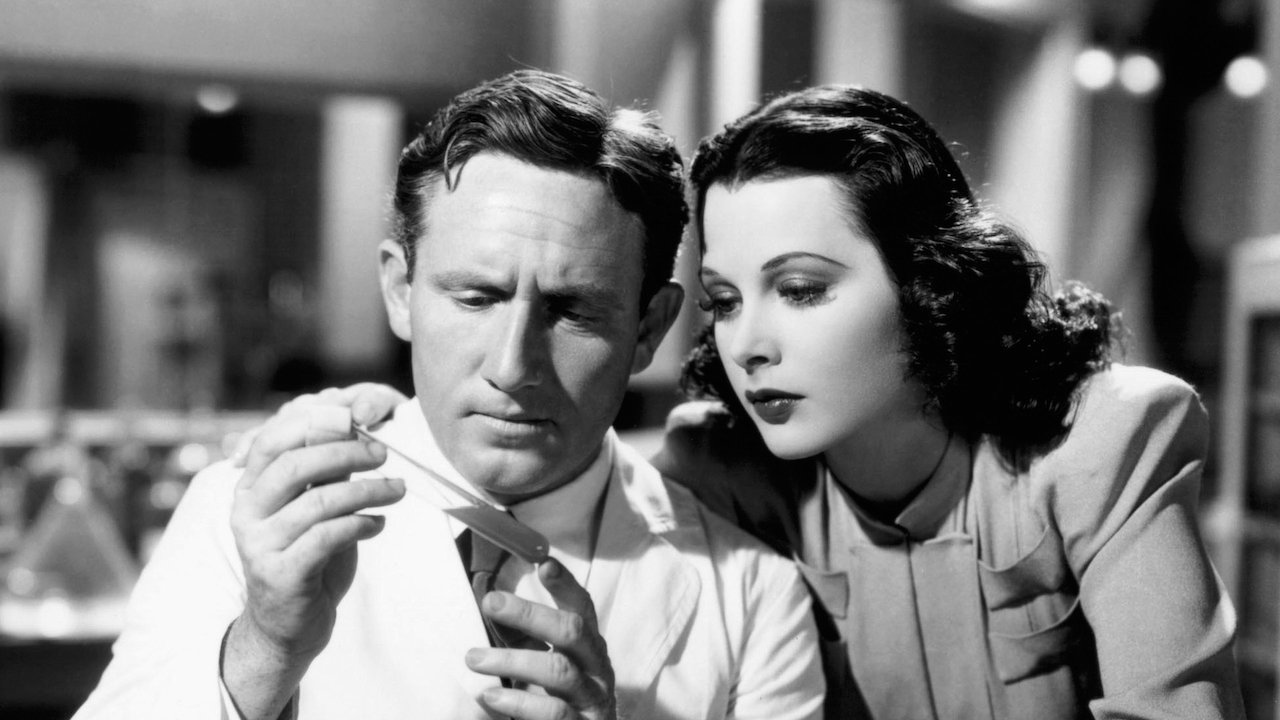While many undoubtedly saw this movie as a celebration of an unlikely feminist icon who should be an inspiration to women everywhere (and it is indeed all that), I found there to be a slightly more patriarchal tone to it.

The fact that the film exists to champion Lamarr’s achievements outside her Hollywood career gives the whole thing a slight sense of amazement that a mere girl did such extraordinary things. Like studio heads, directors and audiences in her heyday of the 1930s, we expect her to be nothing but a pretty face, her life public property to mould as we see fit, and we’re delighted and astounded at this other thing she’s famous for.
I’m probably being reactionary and the creators of this doco felt nothing of the sort, wanting only to celebrate something she did that she never got her full dues for in life.
Having said that, there’s another element of what can nearly be termed fiction. The cultural meme that ‘Hedy Lamarr invented Bluetooth’ is popular, but as is usually the case in real life, the truth is far more nuanced, and any claims to that easily digestible mythology are drawing a bit of a long bow.
What she did (according to the film, and the producers have no reason to cherry pick or make anything up that I could see) was come up with an idea to drive torpedoes through the water using an oscillating frequency so enemy transceivers couldn’t get a lock on their signals and disable them.
Just like we sometimes lazily imagine Steve Jobs invented the iPhone or Tim Berners Lee invented the internet there were far more steps, iterations and work done by other scientists and engineers between that patent and the wireless driven world we know today.
In fact, there doesn’t seem to be too much more to the story of Lamarr’s work as an inventor than that. Her and her partner, composer George Antheil, filed the patent and it didn’t go very far – until years later, when it seems the US military ripped it off, Lamarr never getting due ownership or compensation for it.

The rest of the film deals with what’s essentially a kind of tragic figure. From a plucky upbringing that took her from her native Austria to Hollywood, where she kind of breezed into a career as a movie star, she led another life as a smart, curious and creative woman after hours while the world knew her as a Golden Age screen siren.
And like many who’ve come before and after her, it’s also the story about how Hollywood chews up ingenues and spits them out. Worried about the day when her age would inevitably count against her and her monetary worth would plummet as a result, it’s also a cautionary tale about women’s financial security being dependent on the whims of men, from the fearsome studio boss Louis B Mayer to any number of controlling and abusive husbands.
Despite being a Hollywood star, and denied the spoils from her scientific work, she found herself a single mother barely managing at an age where the movie industry was ready to drop her, and she spent the rest of her life railing violently against getting older, hiding ageing from the world as a crazy shut-in and getting so much plastic surgery she’s probably still perfectly preserved despite her death in 2000.
It’s more of a straight biopic than you expect given the popularity of the idea around her invention, starting with her European childhood and tracing the lives and loves she had, and it feels like a worthy celebration of the woman and not just the myth of her genius.
Subscribe to FIB’s Weekly Alchemy Report for your weekly dose of music, fashion and pop culture news!






